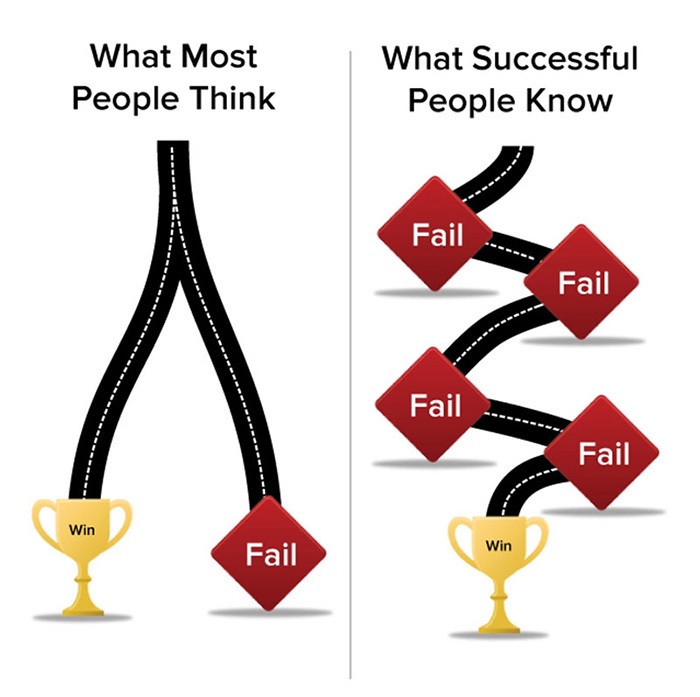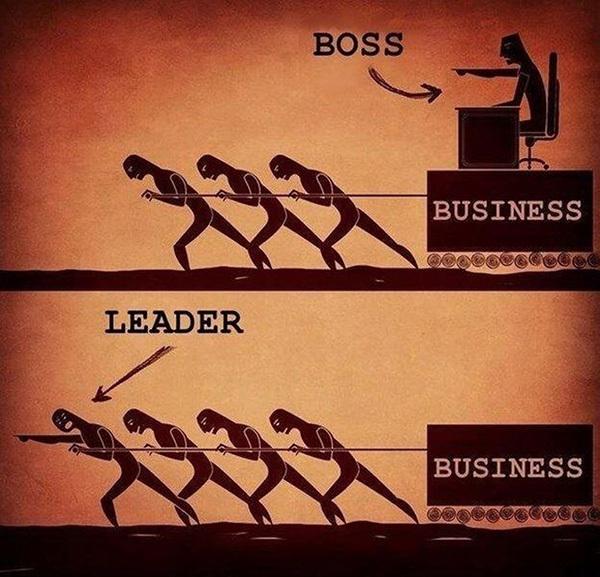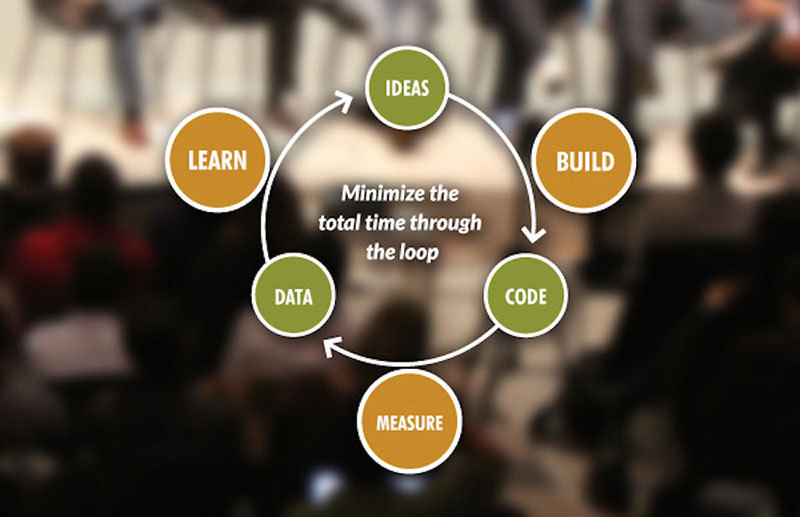Startup step by step: team and mentors

We continue the series of articles on how to build a startup, where we talk about each step with our own example. In the first article we talked about how to come up with an idea, now let's talk about the team.
Our idea is an educational platform Learzing with educational applications / games and a social component. We moved from a general idea to the first brief concept: you play games or use educational applications on various topics, and your experience is gradually growing - a common one and for each subject separately.

It looks like characteristics in role-playing games - strength, dexterity, mana, etc., but instead of such characteristics - real areas of knowledge - English, mathematics, history, etc. As your experience grows, so does the level of your “hero”. You play / study with friends - help each other or compete with each other.

An interesting idea is good, but who will implement it? The next stage began - the search for the team.
The opportunity to find people who are close in spirit is one of the values of the online Technology Entrepreneurship course from Stanford University, from which our startup started (the course is regularly repeated, you can sign up for it at NovoEd ). The course certainly gathers people who are interested in IT-entrepreneurship.
In order to come up with an idea, we brainstormed online at the course forum, which attracted the attention of students, and as a result, the team gathered 10 people from around the world, after which we teamed up with the second team, and the composition became even more international, and the number of participants increased to 20.
In addition, we searched for people through a search form where you can specify the user's area of interest (for example, “Software - Internet - Mobile”) or the desired keywords (for example, “designer” or “HTML5”).
If you read books and articles about startups, you can often see the phrase that a good startup is a good team. Not an idea or even its implementation, but a team. [1]Because a good team can realize any idea, it will not fall apart after an unsuccessful implementation, but will switch to another idea and continue the path to success.

One of the main problems is to assemble such a team. Within the framework of the resulting international team, it was great for everyone to work together on the tasks of the course, but when the course ended and it came to real work, the number of participants began to gradually decrease.
Someone lacks the knowledge and experience to work at the right level; someone does not have enough time because of the main job or family, someone does not take the startup seriously, does not believe in it - the reasons may be different, but the result is the same - the team is becoming smaller, and as a result there are few people left, like with us now. On the one hand, this is not very pleasant, on the other - it is thanks to such checks that a real team is created.
But even if a person does not join the project, you still have a useful contact. So we found our mentors, met with a promotion specialist on Kickstarter and Indiegogo from Belgium, a professional English teacher from Estonia, an animator from Brazil and many others. Even without participating actively in the project, people can help with different issues and at different stages.
While the course continued, we were engaged in startups in our free time and on weekends. After completing the course, it became clear that this time was not enough, the project was moving slowly. Now part of the team is saving money for six months to a year in advance to quit work, switch to freelance or part-time work and devote more time to a startup. Risk is an integral part of a business. By the way, making a startup on weekends and evenings is easy to save on entertainment :)
Many people think about breaking the vicious circle of “work-home-work” - to work not for someone, but for oneself; not depend on the boss; not to spend a lot of time getting to and from work, etc. We also thought about it at a certain moment, and for us our startup is the very opportunity to move to a new level, rather than “go with the flow” .

Where else can I look for participants
The first thing that comes to mind is to talk with friends and acquaintances, tell them about the project and ask if they want to join or recommend others.In our case, the failure rate was at the level of “slightly less than completely”, and this is only the first stage in attracting a new participant. Typical reasons for refusal:
- No time - I want to relax on the weekend, intensive work / study, family, hobbies, etc.
- There is no understanding of how you can work for free.
- Do not like the technology used in the project. For example, a person likes to use only Java or only .NET, and he does not want to try something else and spend time studying it.
- The startup theme is not interesting.
This method was not the most useful for us, however, it also brought several useful contacts.
Another place to look for participants is the hackathons. People gather at them to make a working prototype within 48 hours (usually).

People come, spend time, some pay for participation, this is a lot and speaks of a certain level of motivation. It would seem a favorable alignment for the search for personnel. But not so simple.
- Many hackathon participants (sometimes up to 70-80%) already have their own team, formed before joining the hackathon.
- You compete with other projects for the remaining participants. A large selection of projects allows the participant to choose the most interesting for him, and not the fact that this project will be yours, even if it is cool and seeks to solve an important problem.
- The participant may not want to work on the project after the hackathon (came to have fun).
- Despite the desire to work in a team, there are many more options why further work may not work.
Finding people on a hackathon team is like dating in clubs or companies. First you find that many are “busy.” Talk with some “free” ones, quickly find or don’t find mutual interest, spend an interesting evening (hackathon) and after all this begins building long-term relationships (work on the project after the hackathon), the successful outcome of which is not at all guaranteed.
A few words about free hackathons, conducted, as a rule, by corporations and institutions with state participation. In particular, they give good prizes and free food. This is good, but attracts a lot of students. Their number sometimes reaches 80% of the participants, and often there are more junior students among them. As full-fledged participants, they are not suitable for every startup. However, the hackathons from JetBrains and Stepicas well as HackDay were a pleasant exception. By the way, we found one of the main participants at the near-state hackathon.
Way to success
At the moment, we are sure that success is just a matter of time. Something did not work out - it’s not scary, we got experience and best practices, the team switches to something else, we tried again, and so on until it works out. After several failures, so much experience will accumulate that the next attempt will simply be doomed to success. So the secret is simple - you just need to keep moving forward.
By the way, the obvious advice on the results of working with an international team is to learn English. If you have enough ambition and you want to do not just a Russian-language, but an international project, as happened with us, English is necessary.
The difference in time zones also seriously complicates the work - it’s great to have different points of view, and even from different countries, but it’s unlikely that something can be done / discussed together by everyone.
What is interesting in a startup? We can say for ourselves. The atmosphere of freedom. There is no hierarchy, no deadlines, everyone is engaged in what is interesting to him, and in what he understands. And when there is freedom, something really new and interesting can happen. In addition, an online business is usually not tied to a specific place, which allows you to work not where you need, but where you want. Of course, there is a lot of routine, but when you work for yourself, you realize your own ideas, it is perceived in a completely different way.
Mentors

Finding a good mentor is just as difficult as finding a good member in a team. A good mentor is a mentor who will save a lot of time, share practical (and not theoretical) experience and will throw you useful materials and links. He will scatter your castles in the air and return from heaven to earth. Perhaps you have already come up with an idea that will bring you millions? The mentor will tell you that at present, the idea costs almost nothing, and this idea has already been implemented several times by others. Welcome to reality.
We talked to several mentors at once (finding a mentor is one of Stanford’s course assignments). Two of them turned out to be really good, we can advise them if you are planning to take a course. You can find them through a search, if they participate in the current version of the course, you can also try to contact directly.
The first is Vincenzo Pallotta - NovoEd page , personal page .
The second - Paulo Machado (Paulo Machado) - page on NovoEd , personal page .
From both of us, we received detailed answers on any questions, and with one piece of advice, a mentor can save you a ton of time, and with another piece of advice, you can set a task for which you will spend a ton of time.
From the mentors, we learned what lean startup is, got a bunch of tips (a bunch is so big that they still haven't raked it), we interviewed one of the mentors (see below) and learned from one picture about the wrong and the correct hierarchy in the company, which they decided to stick to. By the way, some successful companies use a flat structure. [2] The

brief essence of the lean startup approach is that you do not need to do the product or service completely, but rather do it step by step, checking the effectiveness of each step in a real audience. What is the advantage of this approach?
A common mistake is when a company develops a product for a long time and expensively, and when it launches a product on the market, it turns out that it is not popular. Or nobody really needs anyone. At the same time, the product can be of high quality, and in the company itself everything is delighted with it. It turns out that the ideas of the creators of the product are far from the wishes of customers. What to do?
Check. Throughout the development. For example, at the very beginning, make surveys from which you will find out the needs of customers. Then make an understandable diagram, presentation or video about what you are going to do, look at the reaction and again collect the opinion of the audience. Then build the first prototype, test it together with users and take into account their opinion again. Etc.
Thus, you save time, money and create the product that you really need. Adjust your product at every step. Perhaps, in general, change direction in the right direction. Not to mention the fact that during this process you are preparing the audience for the release of your product. That is, before you have made the product, you are already getting potential buyers. Moreover, they are also participants in the creation of the product.

Mentor Interview
In the next article we will talk about the business model , and now a short and useful interview with one of our mentors. We asked Vincenzo Pallotta 10 questions regarding the early stage of the startup, which we are in fact at.
1. How did you become an entrepreneur? Is this an inborn or acquired quality for you?
I became an entrepreneur when I realized that my research work does not have the significance that I attached to it. In the technical field, innovations are often difficult to implement, and I wanted to apply my research in the field of artificial intelligence to solve real problems.
I do not know if entrepreneurship is an inborn quality. An example from my life - when I was 16 years old, being one of the first to learn how to use a computer, I organized computer courses and I had a class of 6 people. I believe that entrepreneurship is not the ability to sell, but the ability to create something new and change the world for the better. For me, the goal was always not money, but help people.
At the same time, in order to increase the chances of success and minimize risks, an entrepreneur needs to develop certain qualities in himself and change his thinking. The lean startup methodology is a very good starting point for this.
2. What do you like most about entrepreneurship?
Two main things: helping people and being in the spotlight. The second sounds a little selfish, but I always wanted to be a musician. It is important that you be appreciated for what you do, because that is the measure of your achievements.
3. Where do you get ideas for business? Is there any universal recipe for getting a good idea?
Ideas usually come when I try to connect different areas of activity with each other. If there is some unresolved problem, most likely the solution can be found in another area where similar problems have already been solved. The question is only in transferring the solution to this particular area. Also, to come up with an idea, I often ask myself: “What if ...” A
universal recipe? Stay kids in the shower. Children are the best innovators. They are always full of new ideas.
4. When there is an idea what to do next?
The only way to test and improve an idea is to share it with others. Isolated ideas are barren. Ideas are good when connected to other ideas. Typically, entrepreneurs are afraid that someone will steal their ideas and realize them before, having more resources. It's a delusion. If you publicly and extensively tell about your idea, everyone will know that this is your idea and no one will steal it.
However, it is important to translate your idea into reality. If you wait too long, everyone will forget that this is your idea, and the one who implements it will take your place.

5. When you have a truly unique idea, is it worth it to tell others about it and find out their opinion, or still keep the idea a secret?
Of course, it's worth telling. I would share a general idea to see how and how many people will respond to it. Of course, do not go into the implementation details. Including because people are not very interested. Tell us WHAT you want to do, not HOW you will do it.
6. It is well known that a good startup is a good team. But if you do not have seed capital, it is difficult to find people who are motivated only by an idea and willing to work for free. How to initially assemble a good team without capital?
Hard question. But, in my opinion, the answer is simple. Your team members should share your ideas and see you as a leader. In this case, they will follow you, even without payment. If you can’t convince people to join your startup, which will eventually grow into a business, you should ask yourself what the problem is: in your leadership qualities, in your ideas or in the fact that you have not found people who agree with them?
7. What is the most important quality for a team member - motivation, professionalism or something else?
Motivation - yes, but most of all - reliability and shared values. Professionalism can be acquired. It takes time to make sure these qualities are available. But it is precisely their absence that usually causes failure and internal conflicts.
8. When creating a business model, should you start from your own opinion, as well as the opinions of team members, and try to implement this model, or do you need to focus on the opinions of customers and change the business model accordingly?
Of course, you need to start with customers. Invest in customers from the first minute. Customers are the only thing you have.

9. It is known that Apple does not use focus groups and releases its products based on the opinions of its own leaders and experts. Is it worth it sometimes to use such a model?
I think that Apple does not use focus groups, because they know their customers so well that they don’t need it. In fact, many products at Apple are tested by employees. I think that they use ethnographic methods to identify customer needs. I won’t be surprised if Apple monitors user activity to find out what else can be improved.
10. Do I need to adhere to some kind of hierarchy in the team? Some companies use a flat structure with no bosses. What do you think of such a structure?
I do not recommend sticking to a strict startup structure. Participants must be able to switch to different things and play different roles if necessary. Leaders will emerge on their own in the process. One and the same person can be a good leader in one thing and bad in something else. In general, a leader must be determined naturally, without appointment. For example, if you need to solve a problem, the team will quickly determine who will be able to lead the rest. It is also important that the team be able to rally in case of problems.
And the last - all participants should have a sense of community, and not just be “workers”. This is difficult, but if you understand that someone is not too involved, it is better to leave this member as soon as possible. Do not be afraid to be alone. If this happens, it means that you just had the wrong team.
Original interview in English
1. How did you become an entrepreneur? Was it inborn or acquired trait for you?
I become entrepreneur when I realized that my work as an academic researcher had not the impact I expected. Especially in technology, advances are hardly transferred to the industry and I wanted to leverage the research work I had done in the domain of Artificial Intelligence to build a solution for a real life problem.
I don't really know if being an entrepreneur is an innate talent. For my case, I remember that when I was 16, being one of the early adopters of microcomputers, I started a "Computer School" at my place and got a class of 6 people. I believe that entrepreneurship is not about selling, but about creating and impact. My goal has never been money, but to help people.
I also realize, that in order to maximize impact and minimize risk, one need to acquire certain skills and change mindset. Lean Startup methodology is a very good starting point.
2. What do you like most about being a entrepreneur?
There are essentially two things:
a) helping people
b) being at the center of the stage
I understand that the second might sound selfish, but I always wanted to be a musician. Being appreciated for what I do is important because it's the measure of the impact I have.
3. How did you get the ideas for your businesses? Is there any universal recipe to get a good idea?
Ideas usually come from my interest in creating bridges between different domains. If there is a problem that is unsolved, probably the solution can be found elsewhere, namely where other similar problems have already been solved. It's just a matter to adapting it to the different domain. I have also the sentence "What if ..." in my mind.
The universal recipe? Keep the child spirit. Children are the best innovators. They always come up with new ideas.
4. When you have an idea what step should be done next?
I believe that the only way to validate and enrich ideas is to share them. Segregated ideas become sterile. Ideas are good if they can connect with other ideas. Usually entrepreneurs fear that their ideas can be stolen by others who might execute them with more resources. I believe that this is simply false. Once you start sharing your ideas (and you do at a large scale), everybody will recognize that it is your idea. Who will "steal" your idea will be publicly exposed for that. Nobody will do it.
However, it is important to be able to execute an idea and turn it into a project. If you wait too much, then people will forget that you are the owner of the idea and who will execute at your place has the merit of replacing you.
5. When you think that you have a really unique idea should you share it with everyone and get a feedback or keep it in secret?
Yes, share it definitely. I would share the general idea to see how and how many people react to the idea. Of course, you won't share the details of its implementation. Also because people don't really care. Share the problem you want solve, not how.
6. There is a common thought that good startup is a good team. But if you don't have initial capital it's difficult to find people who are motivated only by ideas and ready to work for free. How to find a good team without funding at the beginning?
This is a difficult question. But I believe that the answer is simple, anyway. Your team mate should share the same vision and recognize you as their leader. If this happens they will follow even without being paid. If you are not able to convince people to join your team with the perspective of developing a business, you should ask yourself where the problem is: is it your leadership, it is your vision, it is the fact that you did not approach people who share your vision?
7. What's the most important quality for a team mate - high motivation, skills or something else?
Motivation yes, but most of all trustworthiness and shared core values. Skills can be acquired. It takes time to validate those elements. But very often they are the major cause of internal conflicts and of failure.
8. When you have a business model should you rely on your opinion and opinions of your team and try to make it come true or rely on feedback of your customers and change the business model?
Definitely rely on customers. Invest in customers from the first minute of your business. Customers are the only asset that matter in a business.
9. We know that Apple doesn't use focus groups and releases products based on their own leaders 'and experts' opinions. Should we use this model in some cases?
I think that Apple don't use focus group because they are so connected to their customers that they don't need to do it. Actually, many products at Apple have been tested by employees. Also, I believe that they use a more ethnographic approach to user requirement elicitation. I would not be surprised that Apple people hang around to see how the people do things in order to figure out how to improve their experience.
10. Should we use some hierarchy for a startup team? Some companies use a flat organization without bosses. What do you think about this type of structure?
In a startup I don't advise to have a rigid structure and rigid roles. Team members should be able to easily be reassigned to different roles when necessary. I also believe that leadership should emerge and be spontaneously recognized by the team members. Sometime, one could be a good leader for a given task and bad leader for another one. In general, there should be a natural sense of who is in charge without having to decide that beforehand. For instance, if a certain problem has to be solved, the team will immediately recognize who could take the lead. Also important is the fact that the team should be compact and capable to unite in cases of troubles.
Last thing, all team members should have a strong sense of belonging and never feel as "just employees". I know that it's difficult, but once you realize that someone does not have this level of commitment, it is better to separate as early as possible. Don't be afraid to remain alone. If this happens, this just means that your team mates were not right for you.
I become entrepreneur when I realized that my work as an academic researcher had not the impact I expected. Especially in technology, advances are hardly transferred to the industry and I wanted to leverage the research work I had done in the domain of Artificial Intelligence to build a solution for a real life problem.
I don't really know if being an entrepreneur is an innate talent. For my case, I remember that when I was 16, being one of the early adopters of microcomputers, I started a "Computer School" at my place and got a class of 6 people. I believe that entrepreneurship is not about selling, but about creating and impact. My goal has never been money, but to help people.
I also realize, that in order to maximize impact and minimize risk, one need to acquire certain skills and change mindset. Lean Startup methodology is a very good starting point.
2. What do you like most about being a entrepreneur?
There are essentially two things:
a) helping people
b) being at the center of the stage
I understand that the second might sound selfish, but I always wanted to be a musician. Being appreciated for what I do is important because it's the measure of the impact I have.
3. How did you get the ideas for your businesses? Is there any universal recipe to get a good idea?
Ideas usually come from my interest in creating bridges between different domains. If there is a problem that is unsolved, probably the solution can be found elsewhere, namely where other similar problems have already been solved. It's just a matter to adapting it to the different domain. I have also the sentence "What if ..." in my mind.
The universal recipe? Keep the child spirit. Children are the best innovators. They always come up with new ideas.
4. When you have an idea what step should be done next?
I believe that the only way to validate and enrich ideas is to share them. Segregated ideas become sterile. Ideas are good if they can connect with other ideas. Usually entrepreneurs fear that their ideas can be stolen by others who might execute them with more resources. I believe that this is simply false. Once you start sharing your ideas (and you do at a large scale), everybody will recognize that it is your idea. Who will "steal" your idea will be publicly exposed for that. Nobody will do it.
However, it is important to be able to execute an idea and turn it into a project. If you wait too much, then people will forget that you are the owner of the idea and who will execute at your place has the merit of replacing you.
5. When you think that you have a really unique idea should you share it with everyone and get a feedback or keep it in secret?
Yes, share it definitely. I would share the general idea to see how and how many people react to the idea. Of course, you won't share the details of its implementation. Also because people don't really care. Share the problem you want solve, not how.
6. There is a common thought that good startup is a good team. But if you don't have initial capital it's difficult to find people who are motivated only by ideas and ready to work for free. How to find a good team without funding at the beginning?
This is a difficult question. But I believe that the answer is simple, anyway. Your team mate should share the same vision and recognize you as their leader. If this happens they will follow even without being paid. If you are not able to convince people to join your team with the perspective of developing a business, you should ask yourself where the problem is: is it your leadership, it is your vision, it is the fact that you did not approach people who share your vision?
7. What's the most important quality for a team mate - high motivation, skills or something else?
Motivation yes, but most of all trustworthiness and shared core values. Skills can be acquired. It takes time to validate those elements. But very often they are the major cause of internal conflicts and of failure.
8. When you have a business model should you rely on your opinion and opinions of your team and try to make it come true or rely on feedback of your customers and change the business model?
Definitely rely on customers. Invest in customers from the first minute of your business. Customers are the only asset that matter in a business.
9. We know that Apple doesn't use focus groups and releases products based on their own leaders 'and experts' opinions. Should we use this model in some cases?
I think that Apple don't use focus group because they are so connected to their customers that they don't need to do it. Actually, many products at Apple have been tested by employees. Also, I believe that they use a more ethnographic approach to user requirement elicitation. I would not be surprised that Apple people hang around to see how the people do things in order to figure out how to improve their experience.
10. Should we use some hierarchy for a startup team? Some companies use a flat organization without bosses. What do you think about this type of structure?
In a startup I don't advise to have a rigid structure and rigid roles. Team members should be able to easily be reassigned to different roles when necessary. I also believe that leadership should emerge and be spontaneously recognized by the team members. Sometime, one could be a good leader for a given task and bad leader for another one. In general, there should be a natural sense of who is in charge without having to decide that beforehand. For instance, if a certain problem has to be solved, the team will immediately recognize who could take the lead. Also important is the fact that the team should be compact and capable to unite in cases of troubles.
Last thing, all team members should have a strong sense of belonging and never feel as "just employees". I know that it's difficult, but once you realize that someone does not have this level of commitment, it is better to separate as early as possible. Don't be afraid to remain alone. If this happens, this just means that your team mates were not right for you.
References
[1] Startup, stop going to trainings[2] Free radicals: 5 companies without managers
All articles in the series
- Startup step by step: the future of online education
- Startup step by step: team and mentors
- Startup step by step: the first business model
- How we did the educational platform: first design, landing page and logo
- How we did the educational platform: first application
- Making an HTML5 Quest: Using the MVC Pattern in Construct 2
- Making an HTML5 quest: creating a character and basic animation
